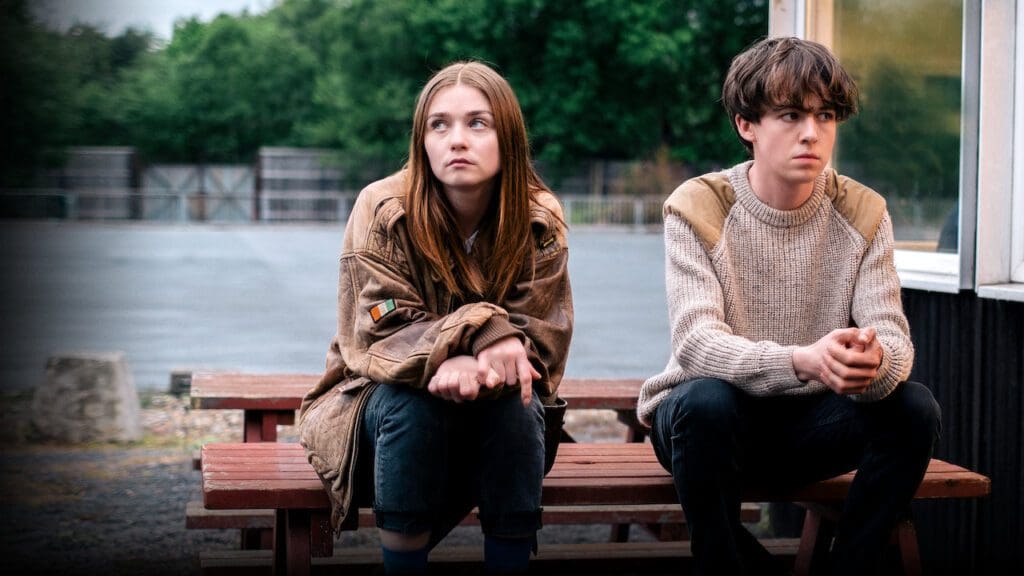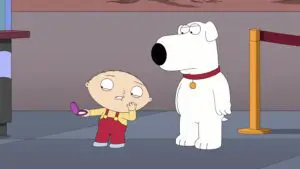Summary
It isn’t typical, and it can occasionally be challenging, but The End of the F***ing World is a surprisingly fresh-feeling tale of adolescence.
This review of The End of the F***ing World Season 1 contains spoilers.
Channel 4’s The End of the F***ing World has a setup that reads like a joke: A psychopath and a rebel walk into a bar and all that. But its cleverest flourish is in how it eventually reverses that attention-grabbing premise into a thorough and refreshingly unusual examination of adolescence, trauma, and love, adapted from Charles Forsman’s series of comics.
The obvious comparison is a British Bonnie & Clyde, but it’s not that, really. In its striking and divisive opening chapters – there are eight, each clocking in at a neat twenty minutes – The End of the F***ing World introduces budding psychopath James (Alex Lawther) and uncaring tearaway Alyssa (Jessica Barden), but then spends the next hour or so allowing them to discover that they aren’t – that they don’t have to be – the disturbed and valueless people they’ve convinced themselves they are.
I say the opening chapters are “divisive”, and I mean it – they’re unafraid to show James butchering animals or Alyssa deliberately sabotaging every situation she finds herself in, and their impromptu road trip feels like a cartoonish parade of misery and artificially bleak random encounters. But across the season, it becomes obvious that both James and Alyssa are trying to cope with deep-seated trauma in the only ways they know how, and it’s in their connection to each other that they discover the potential for a deeper connection to the world around them. James has to believe he’s a psychopath so that he can discover, eventually, that he isn’t one.
The End of the F***ing World is provocative all the way through, but not in the same way. It becomes less about heinous actions and beliefs and more about unpacking how someone commits or arrives at them; what it means for young children to experience considerable trauma and then have to navigate the world as though everything is normal. Once James and Alyssa begin to navigate the world together, they discover quite inadvertently that it is navigable, after all, but only with help. Their crime spree, some of which is a consequence of their own acting out but some a result of even more despair being visited upon them, becomes a roadmap to a kind of emancipation; freedom from the confines of the personas they had built for themselves when nobody cared to listen to who they really were.
Having aired on Channel 4 in the UK, Netflix’s acquisition of the show was a masterstroke since it’s so well-suited to a binge-watch, running scarcely longer than a feature film. The second season – already available in Blighty – is due to release on the streaming giant this Wednesday, and it’ll likely be met with an international audience eager to see how that massive cliffhanger ending played out. But it’s well worth a look for many more reasons than simply finding out what happened – this is a daring, surprisingly atypical version of a played-out genre, and has many interesting and important things to say.



